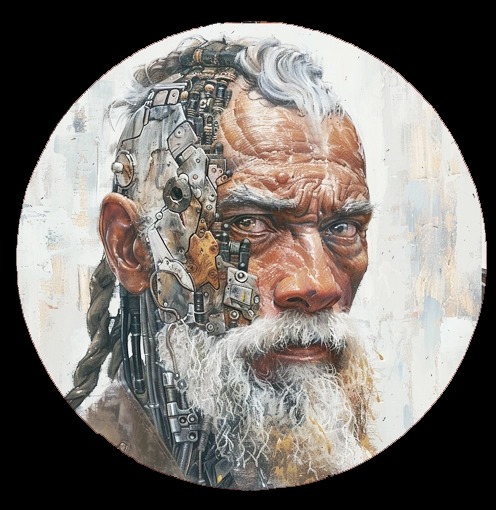I am a native English speaker and recently started learning Esperanto a few weeks ago. I was inspired by a TED Talk that explained how Esperanto is an excellent first choice for those interested in acquiring multiple languages.
Due to its relative simplicity, learning Esperanto effectively prepares your brain for learning additional languages, making the process quicker and smoother.
So how many here speak different languages and what are they?
Native English, forgotten my German, and refreshing my Japanese.
Chinese and Japanese. Learned some others but forgot sadly.
Oy, those are tough ones for us English speakers.
In my personal experience Chinese is only hard in the beginning. It’s an analytic language which in my opinion requires zero thought (sarcastic) compared to Japanese which is very synthetic. Japanese on the other hand is hard as hell for me. I pretty much approach is from a Chinese standpoint and it’s a challenge.
https://en.wikipedia.org/wiki/Analytic_language?wprov=sfti1#List_of_analytic_languages
I’m proficient at Portuguese, Italian, and written English. I can also understand some Latin and German. Plus a few Romance languages through mutual intelligibility.
Due to its relative simplicity, learning Esperanto effectively prepares your brain for learning additional languages, making the process quicker and smoother.
Ah, the propaedeutic effect? I think that Esperanto shows the “guts” of the grammar faster than other languages do, and that helps learning languages with similar features.
Ah, the propaedeutic effect? I think that Esperanto shows the “guts” of the grammar faster than other languages do, and that helps learning languages with similar features.
Yep, that’s what they say.
English. Some french, but not quite at a conversational level.
Native German, fluent English, conversational Norwegian (and by extension passable Swedish; and I read 100% Danish but suck at speaking/listening comprehension), passable Dutch, Luxembourgish and French, and basic Chinese (mandarin).
Edit: And I passed Latin in high school (grades 5 through 10), so I do manage to read inscriptions in old buildings and churches, and pick up written Italian and Spanish because of it.
Whoa! I’m having a tough enough time just learning Esperanto, which is supposed to be easy. But bruh, you are a whole other level. Awesome!
Vi devus rigardi Incubus, kun William Shatner! Gxi estas tre stranga.
Dankon, amiko!
Man, TED talks suck.
That guy scammed you into learning a conlang with the excuse that it does something that all languages do and nobody is even telling you.
Just learn a romance language if you want access to a family of concepts that will carry over easily, friend. It comes with the bonus of being able to talk to people.
Anyway, I’m often light on personal info here, but I’m in a bilingual territory, learned English as a kid, the basics of a couple others through life stuff and I get a few more through osmosis because all languages do that Esperanto trick.
Well here in the US, and in the state I’m in, not a lot of bilingual needs. I know Spanish is pretty popular in a lot of places, and I’ll eventually learn it. But since I’m 55 years old, esperanto seemed more fun. And it’s got an interesting history. Thanks!
French and English natively. I did learn Russian at school for 7 years (but I forgot most of it now), and I am currently learning Japanese.
May i ask how you are learning japanese? School, self-taught or online videos?
Arabic, English, some German, and can read / write Syriac Aramaic (Mostly use it to write Garshuni).
I can very vaguely understand the Syriac script. How similar is it to Arabic? I assume Aramaic and Hebrew are pairs and so are Arabic and Syriac.
You can read some words or full sentences sometimes, but some letters like taw (taa’) ت ܬ, ‘ayn ع ܥ, het (haa’) ح ܚ, and shin (sheen) ش ܫ are impossible to guess without checking out the alphabet first. The madnhaya script is closer to Arabic than the Estrangela script (which you’re probably seeing on your device).
Instead of the Arabic way of distinguishing similar letters by using dots, Syriac adds fangs or lines to change the “rasm” of the letter except for dal and raa’ which use a dot below and one above, respectively. I used to confuse waw ܘ, qaf ܩ, and mim ܡ a lot at first.
It’s a very interesting script, i’ve always wanted to learn it. thanks for the info :D
Especially since i recognize a lot (maybe not always exactly tho) of the characters, like how Tau looks like ط or how waw vaguely looks like و
NP. It’s really interesting beyond it’s similarities to Arabic too; the dots in Syriac are used to make letters hard or soft, which makes a lot more sense than using the same rasm with a different number of dots to make a completely different sound.
The language also often explains the little weird differences between levantine Arabic and MSA or other dialects, like the word “طاقة” which refers to small round windows and “بوبو” which is used to refer to an infant.
The equivalent to Arabic ط is “tet”: ܛ, but in some fonts of Syriac “taw” ܬ looks like a mirrored ܛ.
French is my native tongue, I learned English, Spanish, Italian at school (in that order), few words of German later on my own, learned some Swedish vocabulary on Duolingo, Icelandic basics for when I visited, I can only read Cyrillic.
I’m interested in Korean lately, but haven’t even started
English natively and Spanish as a second language. Those I use every day. I can read and write Latin which I use a few times a week, and know a few words and phrases in Japanese, Lakota, French, German, and Italian.
If I were to learn a fourth language I’d prefer Lakota or Gaelic, but French would be the most useful to me and Italian or Romanian the best combination of use and ease.
I speak a few.
English - Should start out with English since it’s the lingua franca even though it was my second language in two ways. The “native” language of my specific community was a pidgin, so I had access to half of the English language. I would learn this half and the other half later, and yet still be dragged down by my sloppy order of learning, my neurodivergence, and my “hermeneutic” thought process while engaging in dialogue.
Morse Code - My adoptive parents were huge with their communication business at the time. I have absolutely no memory of this, and it’s possible they may be exaggerating, but they told me they tried teaching me Morse Code before they taught me anything else to see if I would “pick it up”, and they said they stopped when it “worked too well”. It is true I have known how Morse Code works for as long as I remember (even though this isn’t saying a lot, the parts of my childhood I remember go back only as far as five years old).
Toki Pona - It is said to be the world’s easiest means of speaking to learn. I picked it up before my teen years, the Toki Pona half one year and the Toki Ma or Kokanu half years later.
Dothraki - I picked this because I really used to like Game of Thrones. Perhaps the only one I picked up neatly in one piece.
Other languages - Not fluently, but I also know bits and pieces of Tahitian, Maori, and Portuguese. Portuguese was my class of choice in middle school, but after I completed that class, the language mostly just vanished from me. Being the “kiwiphile” (Kiwi culture admirer) I come across as, I also would sneak Maori equivalences to sayings into projects and endeavors, such as an artist ID tagline saying “kia tau te aroha noa ki a koutou” (“grace be upon you”).
I was thinking of learning Morse Code, even tho it’s pretty much extinct now that it’s not required for a radio license anymore. I like the history of it and how excited people were about it back in the day. I think it’s still important, so it sucks that it’s going away.
I love the idea of Toki Pona, since it’s quick and short. But I went for Esperanto instead. I may try Toki Pona again tho!
Morse Code is still useful in certain circumstances. There are a lot of objects where you can use its properties as a substitute for the main set of sounds used.
Yep, I agree. It’s just that since it is not longer required learning anywhere for anything, it’s dying. Which sucks.
Native German, fluent English. I struggled, however, with French, Italian, Spanish, as I just can’t wrap my head around it. Languages are super hard for me.
Programming languages, though? I can write about 20 of those. Easy… 🙄
I am jealous fo your programming knowledge. I’d have a lot more money today if I had that skillset!
Yes, that wasn’t the worst decision for my career. My family wanted me to concentrate on languages because they are easy for them, but I always struggled, and struggled hard. It took me a long time to realize I was more of a logical thinker than one of the emotional communicators like the rest of them.
Arabic and English. I’m learning esperanto, Ukrainian and Latin all at the same time (Latin is most important and Esperanto is least)
I’m also learning a very little amount of Hebrew since it’s similar to Arabic in a lot of ways. Like Scottish and English.
Dankon, amiko!
English, Spanish, Basque, French, some Russian, currently learning German.










